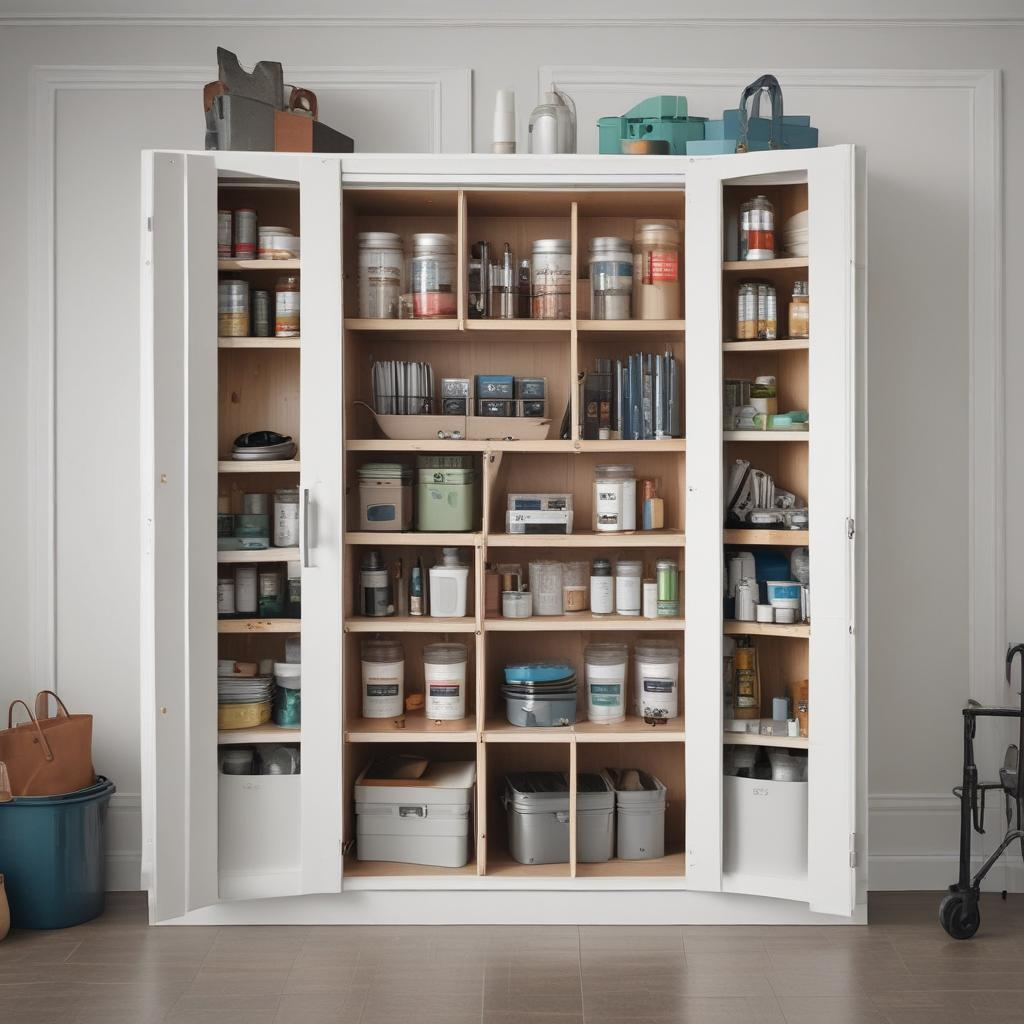Choosing the Right Storage Cabinet: 10 Essential Factors to Consider
Whether it's for organizing tools in the garage, tidying up your office supplies, or giving your books a home, a storage cabinet is an indispensable piece of furniture in many homes and offices. However, the vast array of options available can make the selection process overwhelming. To assist you in making an informed decision, here are ten crucial factors to consider before purchasing a storage cabinet.

- 1. Purpose of the Cabinet
Before you start shopping, it’s important to know what you will be storing in the cabinet. Are you looking for a place to store heavy tools, files, household items, or perhaps clothing? Each type of item may require different features like locks, adjustable shelves, or specific dimensions.
- 2. Size and Fit
Consider the space where you plan to place the new cabinet. Measure the area carefully to ensure that the cabinet will fit without obstructing doorways or causing cramped conditions. Remember to consider not just the width and depth, but also the height, especially if the ceiling is low or there are light fixtures overhead.
- 3. Material
Storage cabinets come in a variety of materials, including wood, metal, and plastic. Each has its advantages and limitations. Wooden cabinets tend to be more aesthetically pleasing and blend well with home decor, but can be susceptible to moisture and termites. Metal cabinets are sturdy and provide better security but can be prone to rusting unless they are properly treated. Plastic cabinets are lightweight and relatively inexpensive but may not support a lot of weight.
- 4. Build Quality
The durability of your storage cabinet will be significantly impacted by its build quality. Look for sturdy construction, smooth edges, and tightly fitting parts. Drawers should slide smoothly, and doors should align correctly when shut. Higher quality cabinets often come with a higher price tag, but investing in a durable cabinet can save money in the long run by avoiding the need for replacements.
- 5. Locking Mechanism
If security is a concern, such as for storing expensive tools or confidential files, consider a cabinet with a locking mechanism. Different types of locks are available, including key locks, combination locks, and electronic locks. Determine what level of security is needed for your belongings.
- 6. Style and Aesthetics
While functionality is crucial, the appearance of the cabinet should also be considered, especially if it will be placed in a visible area of your home or office. Choose a cabinet that complements the surrounding furniture and fits your style preferences. The color and design should not only match but also enhance the overall décor of the room.
- 7. Adjustable Shelving
Storage needs can change over time, so consider opting for a cabinet with adjustable shelves. This feature allows you to modify the spacing between shelves to accommodate items of different sizes, providing flexibility and maximizing storage efficiency.
- 8. Ventilation
If you plan to store electronic equipment, chemicals, or any other items that need air circulation, look for a cabinet with built-in ventilation to prevent overheating and moisture accumulation. Proper ventilation ensures that your items are stored under optimal conditions, helping to extend their lifespan.
- 9. Ease of Assembly
Some storage cabinets require assembly. Review the assembly instructions before you buy to make sure you’re willing and able to put the cabinet together. Consider whether it requires tools that you already have, and check if the manufacturer offers customer support for assembly issues.
- 10. Budget
Storage cabinets can vary significantly in price, based on size, material, brand, and features. It is important to set a budget before shopping and stick to it. While it may be tempting to go for a cheaper option, consider the long-term value and durability offered by a slightly more expensive cabinet. Remember, a higher initial investment might save you money on replacements and repairs down the line.
In conclusion, finding the perfect storage cabinet requires careful consideration of its purpose, size, material, quality, security features, aesthetics, adjustability, ventilation, assembly requirements, and cost. By taking the time to review each of these aspects, you can select a cabinet that not only meets your storage needs but also fits your budget and enhances your space.
Remember that the most suitable cabinet is one that balances functionality with style while ensuring durability and security. By carefully evaluating all these factors, you can make a purchase that you'll be satisfied with for years to come.


.jpg)
.png)
.png)


0 Comments